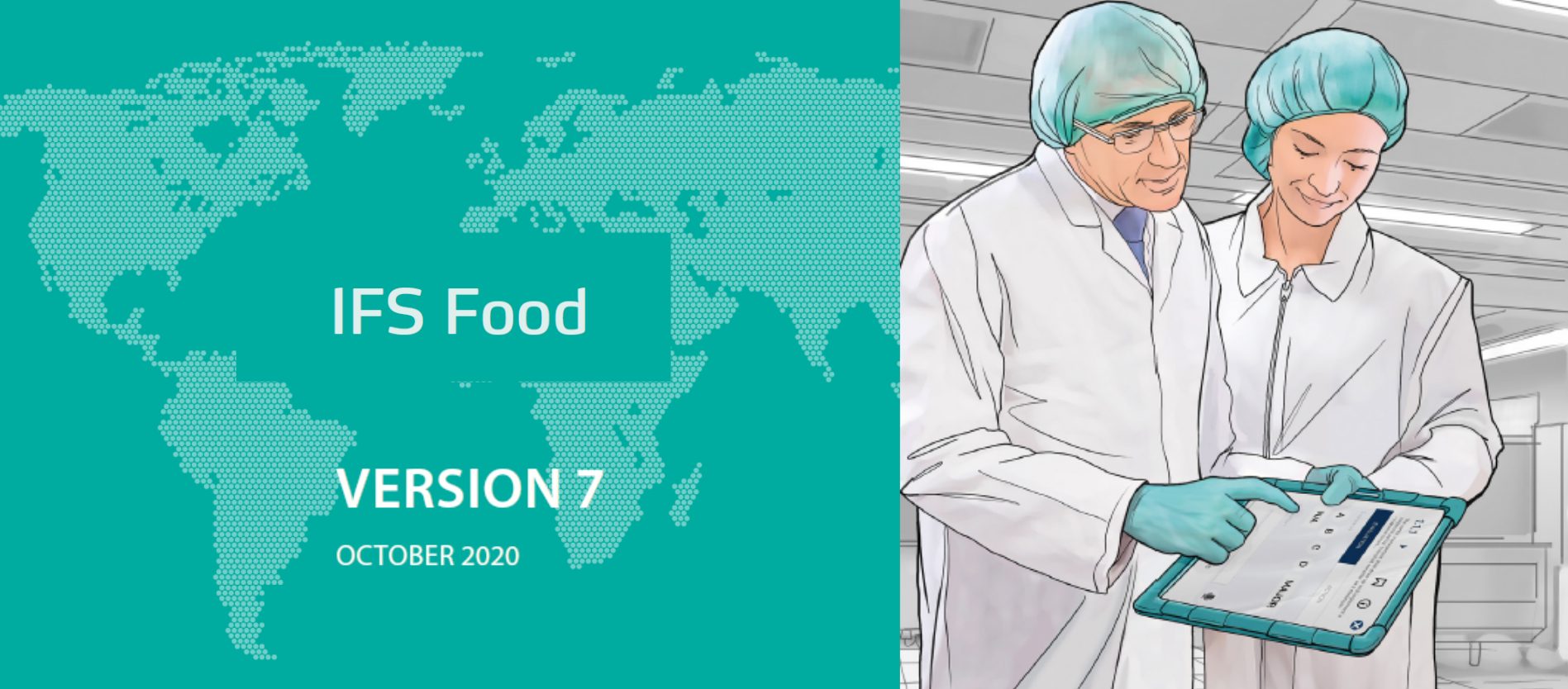
IFS Food version 7 was published on October 6th with some major changes although the standard has not changed the familiar structure of its requirements.
For the first time in the food safety standards history, there are fewer requirements in a new version of a standard (237 vs 282 in the previous version), showing the certification program owner will to simplify its standard, after involving all stakeholders (certified food producers, retailers, certification bodies), and to focus on what matters most: quality and food safety are done, lived in the workshop.
The Objectives are to focus on a process certification respecting the requirements of the ISO 17065 Accreditation Standard:
- More time spent on the site, production line (50%)
- Reduction of Documentation requirements.
This includes also the need to close non-conformities before issuing a certificate, therefore IFS has reviewed their notation system and consequently the certification protocol: corrections must be done and approved by the certification body before certification can be granted. This is a major change!
It introduced the notion of “point of attention” (evaluated as B) representing a risk that a situation that today conforms to the standard may evolve negatively in the future.
Respecting the evolution of the Global Food Safety Initiative latest requirements, the IFS Food standard requires now that one out of three annual evaluations is conducted in an unannounced way.
And what better way to rethink the roles and responsibilities for quality and food safety within the company than to implement a food safety culture policy assessing the need to improve awareness, communication, training, employee feedback, that is truly embedded in the day to day operations of the company.
If there is a field where Leading by example or walking the talk is needed it is Food Safety.
Let’s forget for a little while procedures, instructions, signatures, records….and focus on behavior, mindset, understanding the why rather than checking the how.
It is a good opportunity to rethink if the way we do things here, for years, is adapted to the way people think, learn, live…
Can we inspire to be better for the sake of the consumers that eat the food we produced?
Never the expression “Food for thought” has had a clearer meaning.
Bruno SECHET
